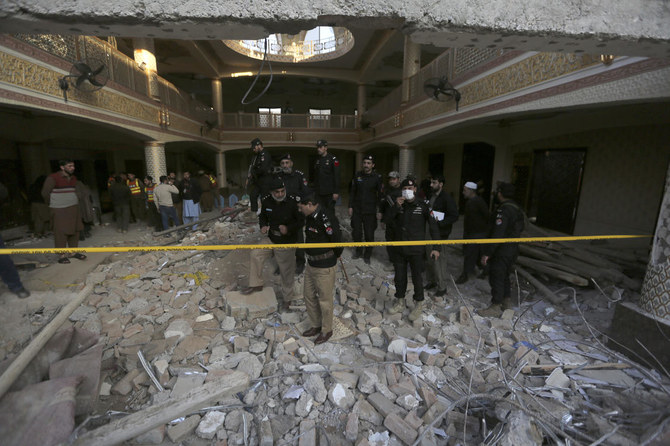The severed head had been hung from a tree, its lifeless eyes staring out at the main lane of the Bachki market like the goat carcasses strung up in the local meat shops. Fear spawns its own tortured vocabulary. Like many condemned to live in crucibles of terror, the widow of Frontier Constabulary soldier Rehman Zaman called his killers na-mal’um afraad, unidentified individuals. The killers proudly filmed themselves: The savage execution was released on social media, a warning for those who served an infidel state fighting the army of God.
Earlier this week—following the suicide bombing of a mosque in Peshawar, which killed more than 100 people—uniformed police officers summoned the courage to march through the streets with a defiant slogan: Yeh jo na-mal’um hain, woh humko malum hain, “we know who these nameless people are.”
Like the killing of constable Rahman in December, as well as dozens of attacks on civilians, the bombing is believed to have been carried out by the Jama’at-ul-Ahrar—one of the dozens of loosely-allied jihadist groups that make up the Tehreek-e-Taliban, which is fighting to carve out a shari’a-governed state from Pakistan’s north-west.
The great historian AJP Taylor observed of the German revolutions of 1848-1849: “history reached its turning point, but failed to turn.” The Pakistan army has vowed to crush terrorism after the Peshawar bombing, but words like these have amounted to little. Local residents have long been demanding that the government act against the jihadists. Fearing civil war, though, the government has chosen to seek secret deals with them instead.
Ever since the Taliban took power in Kabul, jihadist violence across Pakistan has exploded. Facing an unprecedented financial crisis, Pakistan just doesn’t have the will—or resources—to fight back, raising the real prospect of a jihadist triumph.

